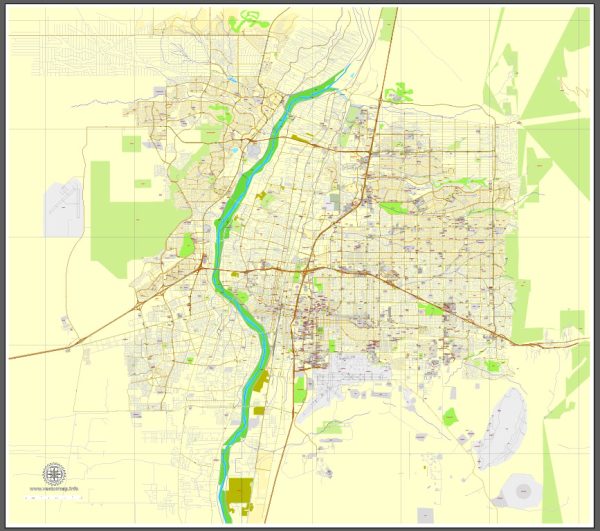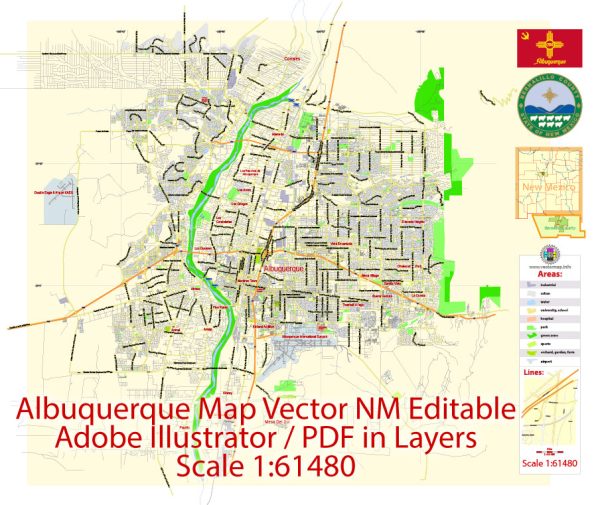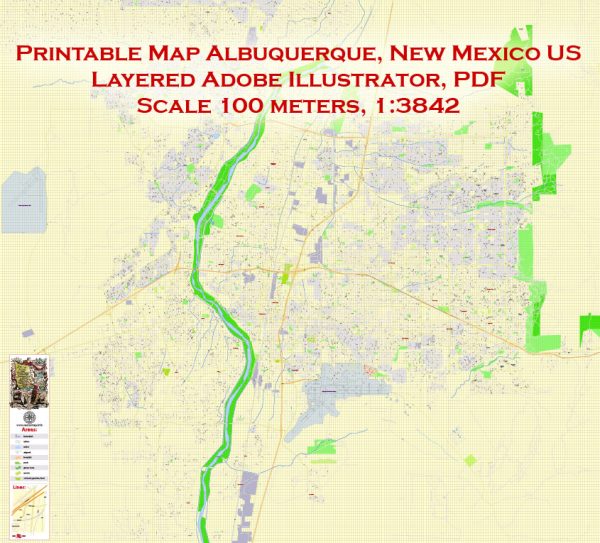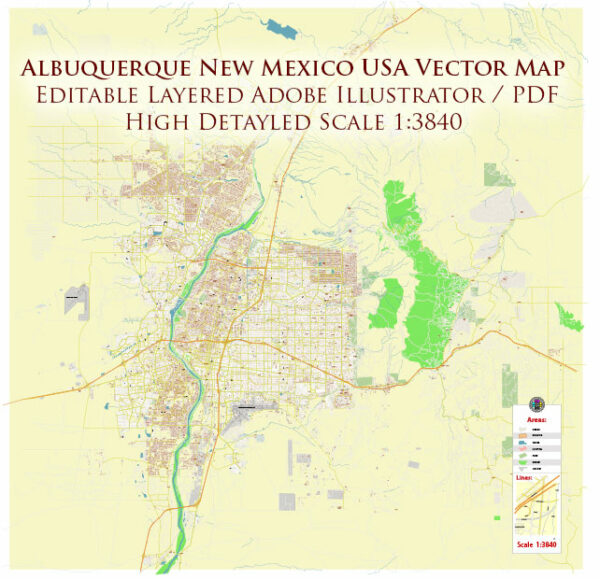Albuquerque, New Mexico, is a city with a rich and diverse history that has played a significant role in the development of the American Southwest. Here’s a brief description of its history in the context of U.S. history:
- Native American Heritage: The area now known as Albuquerque has a long history of Native American settlement, with indigenous people, including the Pueblo, Navajo, and Apache, living in the region for centuries before European contact. The Rio Grande, which flows through the area, provided a vital source of water for agriculture.
- Spanish Colonization: Albuquerque was founded in 1706 by Spanish colonists and was originally established as a Spanish outpost along the Camino Real, a trade route connecting Mexico City to San Juan Pueblo (modern-day Ohkay Owingeh). The city was named after Francisco Fernández de la Cueva, the 10th Duke of Alburquerque.
- Mexican Period: During the early 19th century, New Mexico, including Albuquerque, was part of Mexico following its independence from Spain. The Mexican period came to an end during the Mexican-American War, when the United States took control of New Mexico in 1846.
- American Expansion: Albuquerque became a U.S. territory as a result of the Treaty of Guadalupe Hidalgo in 1848, which ended the Mexican-American War. It subsequently played a pivotal role in the westward expansion of the United States.
- The Railroad Era: The arrival of the Atchison, Topeka, and Santa Fe Railroad in 1880 greatly influenced Albuquerque’s growth. It became a key transportation hub, fostering trade and settlement in the region.
- Route 66: In the early 20th century, Albuquerque became a prominent stop on the historic Route 66, a major east-west highway connecting Chicago to Los Angeles. This further fueled the city’s growth as a crossroads of culture and commerce.
- Military Presence: The city is home to Kirtland Air Force Base, established during World War II, and Sandia National Laboratories, which conduct vital research in defense and nuclear technology.
- Cultural Diversity: Albuquerque is known for its cultural diversity, shaped by Native American, Hispanic, and Anglo influences. The city’s cultural heritage is celebrated through events like the Albuquerque International Balloon Fiesta and traditional festivals.
- Modern Albuquerque: Today, Albuquerque is New Mexico’s largest city, known for its thriving arts scene, high-tech industry, and research institutions. It continues to be a vibrant and culturally rich city with a blend of historic charm and modern innovation.
Albuquerque’s history reflects the dynamic evolution of the American Southwest and its deep-rooted connections to Native American, Hispanic, and American cultures. Its strategic location along transportation routes has contributed to its growth and influence in the region.





 Author: Kirill Shrayber, Ph.D. FRGS
Author: Kirill Shrayber, Ph.D. FRGS